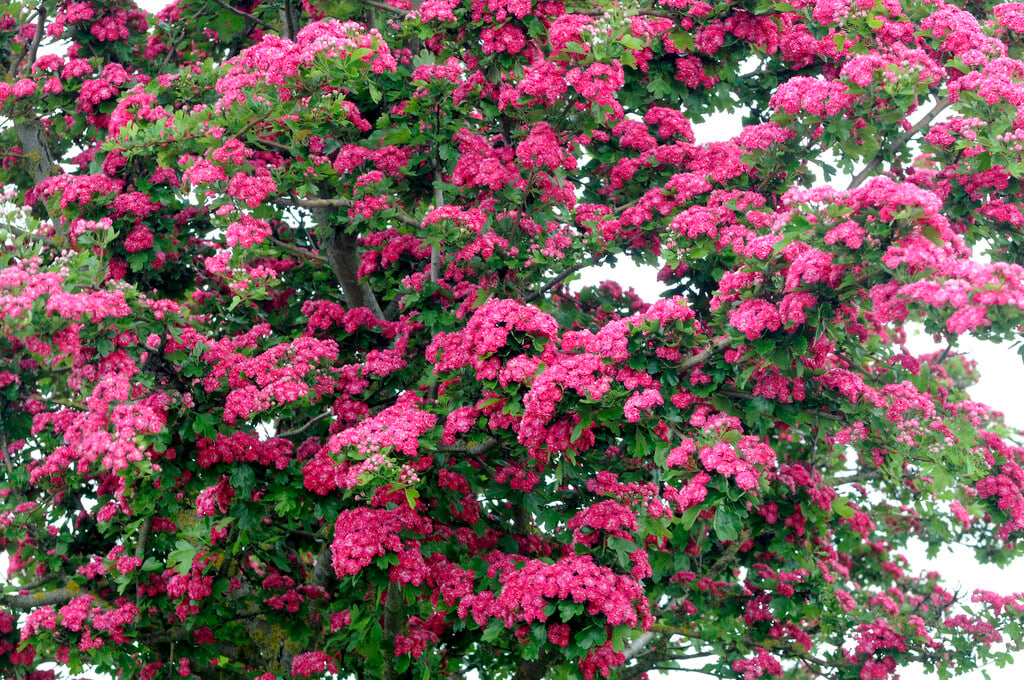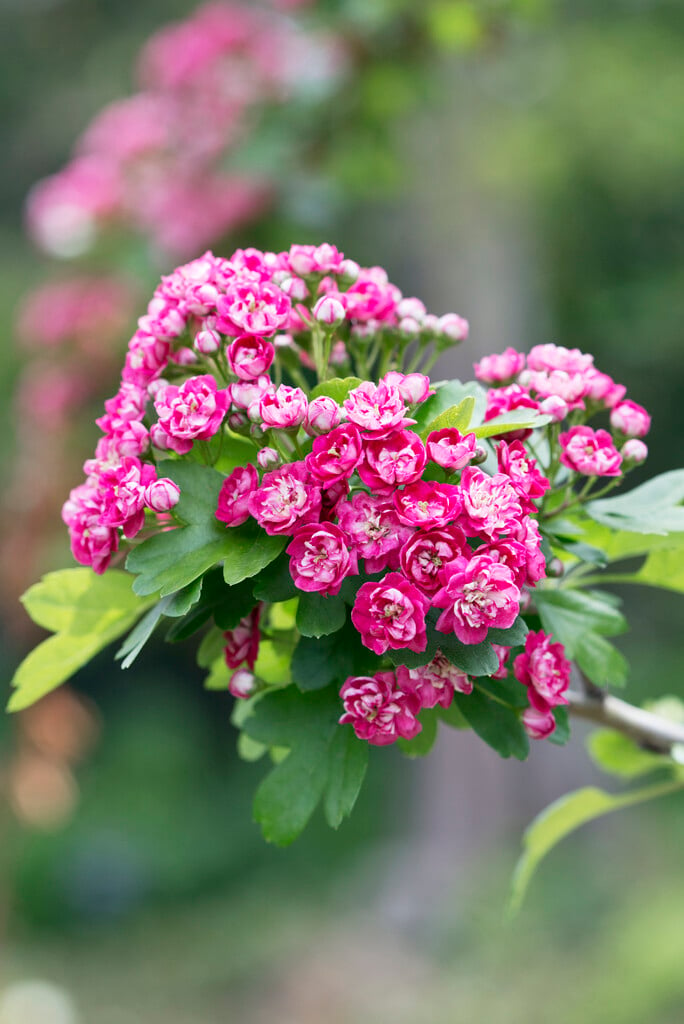Crataegus laevigata 'Paul's Scarlet'
hawthorn 'Paul's Scarlet'
A small, rounded deciduous thorny tree with lobed, glossy leaves and fully double, light red flowers which appear in spring. These are followed by orange-red berries in the autumn
Synonyms
Crataegus × media 'Kermesina Plena'Crataegus × media 'Paulii'
see moreCrataegus × media var. paulii
Crataegus laevigata var. paulii
Crataegus coccinea 'Plena'
Crataegus oxycantha 'Paul Scarlet'
Crataegus laevigata 'Coccinea Plena'
Crataegus laevigata 'Paul's Scarlet'
Crataegus × media 'Coccinea Flore Pleno'
Size
Ultimate height
4–8 metresTime to ultimate height
20–50 yearsUltimate spread
4–8 metresGrowing conditions
Moisture
Moist but well–drained, Well–drainedpH
Acid, Alkaline, NeutralColour & scent
| Stem | Flower | Foliage | Fruit | |
| Spring | Red | Green | ||
|---|---|---|---|---|
| Summer | Green | |||
| Autumn | Green | Orange Red | ||
| Winter |
Position
- Full sun
- Partial shade
Aspect
South–facing or North–facing or West–facing or East–facing
Exposure
Exposed or Sheltered Hardiness
H7Botanical details
- Family
- Rosaceae
- Native to GB / Ireland
- No
- Foliage
- Deciduous
- Habit
- Bushy
- Potentially harmful
- Seeds contain toxins so these should be removed if you are considering eating the fruit, usually grown as an ornamental shrub Pets: Fruit are ornamental - not to be eaten - see the HTA guide to potentially harmful plants for further information and useful contact numbers
- Genus
Crataegus are deciduous trees and shrubs, usually with spiny branches, lobed or toothed leaves, and clusters of creamy-white flowers followed by red or black fruits. Some have fine autumn colour
- Name status
Accepted
How to grow
Cultivation
Grows well in most soils in sun or partial shade
Propagation
Propagate by seed or grafting
Suggested planting locations and garden types
- Cottage and informal garden
- Low Maintenance
Pruning
Pests
May be susceptible to caterpillars, gall mites and aphids
Diseases
Generally disease-free but may be susceptible to a leaf spot, fireblight and honey fungus
Love gardening
Sign up to receive regular gardening tips, inspiration, offers and more
View our Privacy Policy
Get involved
The Royal Horticultural Society is the UK’s leading gardening charity. We aim to enrich everyone’s life through plants, and make the UK a greener and more beautiful place.

